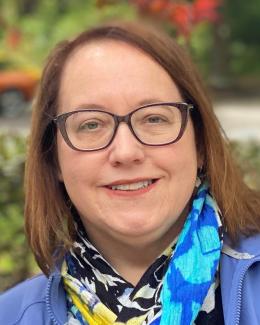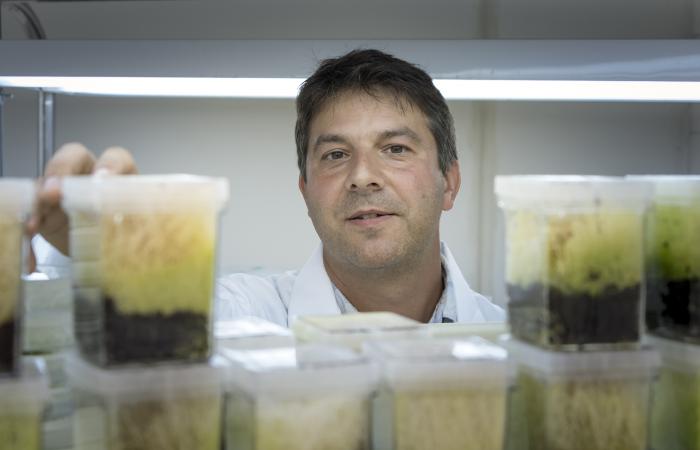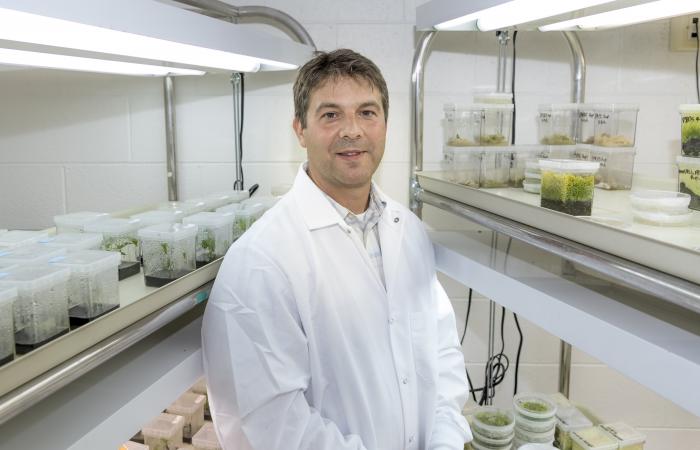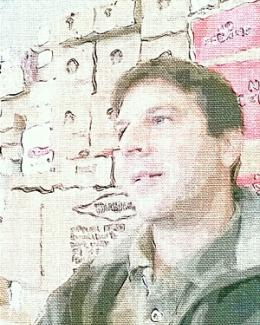David Weston became fascinated with plant genetics and ecology in college, and now with the support provided by the DOE Office of Science Early Career Research Program, he will link those fields as he studies plant-microbe symbiosis.
The research will focus on sphagnum moss, a dominant plant of northern peatlands that stores dead organic plant material as peat for centuries. Despite occupying only about 3% of the earth’s surface, peatlands contain some 25%-30% of all the world’s soil carbon, noted Weston, a plant physiologist and biologist in the Biosciences Division at ORNL.
Sphagnum moss covers many peatlands like a carpet. The symbiotic relationship it forms with bacteria enables the plant to derive nitrogen directly from the air rather than from the soil, which allows it to thrive in nutrient-poor environments. However, scientists don’t know much about how that symbiosis forms or what causes it to break apart.
The research could, for instance, spur the creation of hardy bioenergy feedstock crops that require less nitrogen fertilizer. It is also important in understanding the earth’s carbon cycle.
“We are not sure how the symbiosis will respond to changing environmental conditions. If the symbiosis disrupts the plant may decline, and if that happens we don’t know how that will affect the ecosystem, including whether the carbon stored in the soil and plants, referred to as a “carbon sink,” may be released into the atmosphere”, Weston explained.
Under the five-year DOE Early Career Research Program award he recently received, Weston will study the genetic and environmental factors that affect symbiosis.
The project will also examine how the symbiosis works in a natural field setting with a complex community made up of millions of microbes. “Will that microbiome maintain the symbiosis in extreme environmental conditions? I’ll be looking to answer that question next,” Weston said.
Weston’s research in both the bioscience and environmental science areas at ORNL was a natural progression to his Early Career proposal. In bioscience, he has studied how plant genes relate to physical traits—information that is important as ORNL works to develop better bioenergy feedstocks. In environmental science, Weston’s work has focused on how plant traits relate to ecosystem function.
Weston credits a childhood spent exploring the woods of upstate New York and backyard gardens for his curiosity about the natural world. Later as a student at Cornell University, he developed a keen interest in plant genetics as the Human Genome Project was making headlines.
After earning a PhD at Clemson University, Weston came to ORNL as a postdoc studying plant gene expression profiles and relating that to nitrogen acquisition and population changes.
Weston said he is personally motivated by the cumulative nature of scientific inquiry. “Every time you learn something it brings up 10 other questions,” Weston said. That’s where the multidisciplinary environment of the lab is essential, with capabilities in quantitative genetics, high-performance computing, and advanced microscopy, for instance, he added.
“That’s part of the challenge at ORNL. Sometimes you might feel like a kid in a candy store with the great equipment and expertise we have here. The Early Career Research award will help me focus on a particular area,” Weston said.
Weston stays busy away from the lab as well. He and his wife have three children—ages 13, 12, and 10. He also coaches youth lacrosse and enjoys trail running and playing hockey. Someday, if he can find the time, Weston said he’d like to have his own hobby farm—5-10 acres where he can rotate crops and raise sheep and chickens.
ORNL is managed by UT-Battelle for the Department of Energy's Office of Science, the single largest supporter of basic research in the physical sciences in the United States. DOE’s Office of Science is working to address some of the most pressing challenges of our time. For more information, please visit http://energy.gov/science.
Early Career Award Video - https://www.youtube.com/watch?v=0nwcivCj4OU&t=3s





